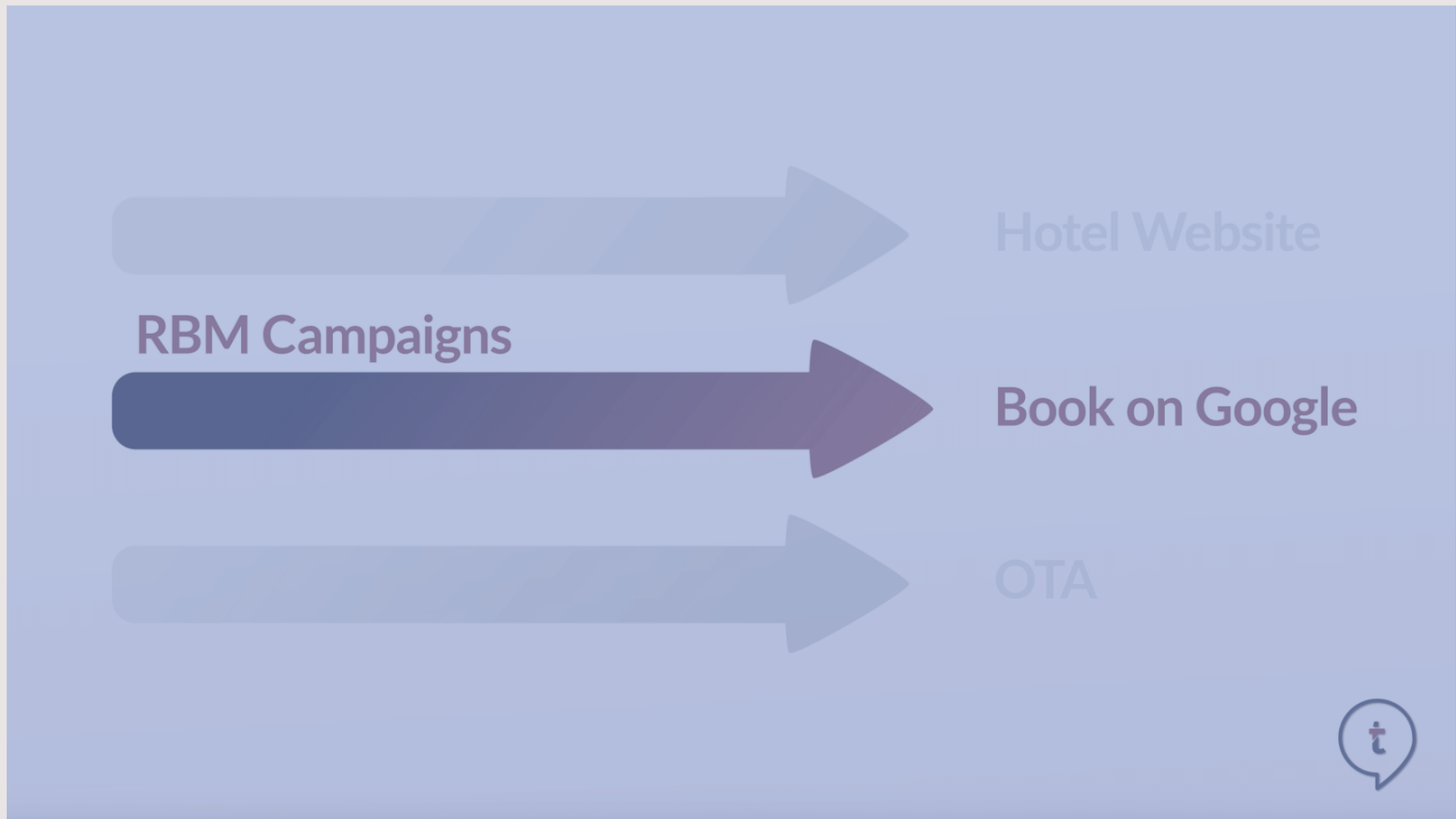Re-thinking the vendor selection process in the post-pandemic world
Typically, when selecting vendors hoteliers follow a standard Vendor Selection Process that covers 5 steps.
- Analyze business requirements
- Search for a vendor
- Write a Request for Proposal (RFP) & Request for Quotation (RFQ)
- Evaluating the proposal & selecting the vendor
- Creating a contract negotiation strategy
While this all seems simple, is this how selecting a vendor for hospitality technology should be approached in the 2020s and post-pandemic era?
We believe that no matter how you approach the selection process, it comes down to 4 important points of consideration.
Problem, Product, Performance and People.
The Problem
Technology exists to solve a problem. Identifying that problem is the first step. What issue are you trying to solve with a new technology or an update to a legacy system?
Creating a Business Problem Statement is a great way to cut through the noise and start to build a business case to allow all stakeholders to be clear about what you are trying to achieve.
A business problem statement consists of four main components:
- The problem - The problem statement begins with mentioning and explaining the current state.
- Who it affects - Mention the people who are affected by the problem.
- How it impacts - Explain the impacts of the problem.
- The solution - Your problem statement ends with a proposed solution.
As important as identifying the problem is, it is equally important to assess the needs of the business to be able to move on to identify the requirements needed in a solution.
Some key business considerations you should keep in mind when creating your list of requirements for a technology solution are;
- What are your strategic business goals for the coming year(s)?
- How could this solution impact those business goals?
- Is there a budget available?
- What would be the consequence of doing nothing?
Answering these questions will help determine your high-level business needs, ensuring that all stakeholders involved can think critically about how a technology solution will support the business goals.
When you have aligned on the business needs, you should rank and define the requirements that the technology must have. This ranked list will act as your guide when you research options and start demoing solutions.
The Product
Now that you’ve identified your problem, you’ve made sure that solving this problem is aligned with your business goals across all stakeholders, and you have built a clear requirement list a vendor must have. You can start identifying possible vendors and their solutions.
While your ranked requirement list will act as a guide to start identifying solutions, what else should you consider in a possible partner vendor?
- Does the vendor provide remote or digital product demonstrations?
- Can the vendor provide pilot or test systems for evaluation?
- Can the vendor provide remote or digital existing customer references?
- Does the vendor provide remote onboarding and customer support?
- Does the vendor undertake regular account reviews?
- Does the vendor provide customer success support?
A customer’s success is the Vendor’s success. Identifying those vendors who care about their customers and not just their bottom line should be a key part of any selection process. In the wake of the COVID-19 pandemic, our industry is rightly assessing the level of support it receives from its partner vendors. Look for a vendor who can provide evidence of being a partner to their customers rather than a transactional seller.
The Performance
It would be fair to say that there are multiple options available from numerous technology vendors to solve a single problem. Taking the time to understand the performance of the vendor’s business and their product can help you make a decision that should, hopefully, lead to a long-lasting partnership.
Is there a history of proven success?
This may seem like an obvious point, but as a key part of your selection process, you should be looking for evidence of a vendor’s technology providing success to other hoteliers and accommodation providers that have faced similar if not the same problems as you. If a vendor is unable to provide evidence of their solution having delivered results and a positive ROI for other customers, you should keep this in mind when making your final selection. A caveat here is that there are many fantastic and innovative startups disrupting the market and providing new ways of solving old problems. Where a vendor is a very early stage startup and might not have the same hard evidence available as a more established name, this should prompt you not to dismiss them entirely but to delve deeper into their methodology and approach.
How did the vendor support its customers during the pandemic?
The COVID-19 pandemic was an unprecedented and challenging time for businesses across the globe, but, arguably, our industry has been disproportionately affected, given a much longer period of punitive restrictions than others. We’ve mentioned partnerships before, but it is during times of crisis that the strength and truth of a relationship with a vendor are laid bare.
As part of your selection process, probe how the vendor adapted and how did it support its customers. While we all hope with a fervor that we do not experience anything like the COVID-19 pandemic again, how a potential business partner acted during that period can give you insight into how much they really value their customer's success and how they are likely to act in the future.
“Those who do not learn from history are doomed to repeat it” – George Santayana
The People
Selecting the right technology partner for your hotel is no small task. But for many hoteliers, a hard choice becomes easier when they consider one pivotal element of service: the people. Hospitality is, after all, a people-centric industry.
In the hospitality industry, it’s always been about the people who step foot on each hotel property. The entirety of their unique experience is made up, in large part, of interactions with staff. The relationship between a hotel and its guests is paramount to its success.
So, why should the relationship between a hotel and a technology vendor be any different?
Just as the guest-facing experience relies on high-touch service, the staff-facing experience depends on the technology supplier’s high-touch service. Because, in the hyper-competitive and ever-demanding world of modern hospitality, especially during uncertain times like these, hotels don’t merely need a vendor — they need a partner.
How did the vendor support its staff during and after the pandemic?
Just as how a vendor treated its customers during the pandemic, how they supported their staff offers a critical insight into who they are.
Don't underestimate the importance of industry expertise
Let’s face it; hotel operations are complicated. So, why should the support offered to hotels by technology vendors subscribe to a format that, ultimately, doesn’t effectively serve the hotel’s service model?
During your selection process, consider the following:
- Are the vendor’s support team hospitality industry experts or just generalists in tech support?
- Will you have access to account management or customer success support? Are they there when you need help?
A great technology partner should have the breadth of knowledge and experience to understand and support your business from end to end. They should be able to help you maximize your investment and ensure you receive the best value from your solution well into the future.
Do look to the future
Technology should not only address problems in the present; instead, it should guide its users seamlessly into the future. As the hospitality industry continues to pivot, evolve, and adapt to emerging trends and demands, hotels will rely on those platforms, which allow them to be responsive and agile in their approach. Not only that but there should always be room for growth.
When assessing prospective vendors, consider the following:
- Is the platform scalable? Will it aid in the growth of your hotel over time?
- Do they have a vision for the future of both their platform and the hospitality industry at large?
- Does the platform offer easy integrations for cross-platform functionality as your hotel grows its technology stack?
- Does the platform offer flexible packages and service options?
- Is exceptional customer service a key part of their internal company culture?
Don't Settle
It may be a controversial opinion, but the point-in-time, strict scored RFP approach to vendor selection is not how our industry should be approaching technology selection as we move forward.
Implementing new technology isn’t simply a purchase; it’s the start of a long-term relationship between the hotel and the vendor.
A people-first service approach can predetermine a given solution’s success within a property and, subsequently, stands to impact the hotel’s success well into the future.
Keeping in mind Problem, Product, Performance, and People, hoteliers and accommodation providers can identify those vendors that offer a sincere and heartfelt commitment to their customers’ success and, in turn, empower their team to do their most outstanding work while keeping their customers at the forefront of everything they do.
About the Author
Nigel Allport, Chief Commercial Officer at For-Sight

-
Nigel is a highly respected sales executive with over 20 years of experience in the hospitality technology sector, working with a diverse client portfolio of top-tier hotel brands, luxury and boutique hotel chains, hotel management companies, resorts, franchisees, independents, and Business Partners. An international executive, Nigel is a frequent guest speaker and presenter at many industry events and conferences, including HOSPACE, HOSTEC, and HTNG in the United Kingdom.
Connect with Nigel on Linkedin.
For-Sight is a Contributing Member at techtalk.travel
Also, make sure to find these supporting Editorial Elements on Rethinking the Technology Vendor Selection Process
- VIDEO l Rethinking the Vendor Selection Process featuring Jill Boegel from Shiji Group
- INFOGRAPHIC l Rethinking the Vendor Selection Process, co-created with For-Sight
- PODCAST l Is the traditional RFP process still relevant today? With Albert Maes (H-Hotels.com), Mark Fancourt (TRAVHOTECH), and Allan Nelson (ForSight)
EXPLORE FURTHER. Related editorials:




 Free download
Free download

![V03: The History of Hotel & Travel Technology | [Updated] Infographic](https://www.techtalk.travel/storage/app/uploads/public/63f/e6f/ec8/63fe6fec80447817849943.jpg)



Create an account to access the content.
Get access to Articles, Video's, Podcasts, Think Tanks, Infographics and more.
Click “Sign In” to accept our
Terms of Service Privacy Policy